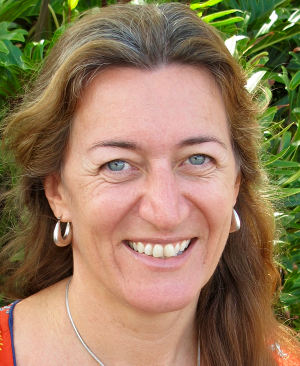Research has begun on a PhD study aimed at exploring why a greater number than the national average of Northern Rivers parents, especially those in Byron Shire, choose not to vaccinate their children.
North Coast NSW statistics show immunisation rates for one, two and five-year olds are less than most other areas in Australia, although not dramatically so
While these 2011-12 figures will be updated soon, the results are not expected to vary significantly.
However, the breakdown by local postcodes shows significantly higher non-vaccination rates in Byron Shire
In postcode 2481 (Byron Bay), only 76 per cent of one-year-olds are fully immunised, with this figure dropping to 69 per cent by age two years, and 63 per cent by age five.
In neighbouring postcode 2482, still in Byron Shire but centred on Mullumbimby and taking in the nearby hinterland, the immunisation rates drop even further: just 47 per cent of one-year-olds are fully immunised, 46 per cent of two-year-olds, and 49 per cent of five-year-olds.
Keen to understand the reasons, long-standing Byron Shire resident, midwife and mother of four, Catherine Helps has embarked on a PhD study through The University of Sydney’s School of Public Health, with local supervision through an academic at the University Centre for Rural Health, North Coast.
In late October 2015, Ms Helps began interviewing the first of an eventual 40 parents who decided not to immunise their children, or who began the recommended regime but decided not to continue.
Ms Helps told GPSpeak that her approach aims to provide parents with an opportunity to express their views and decision-making processes without judgment or persuasion.
“I am aiming for a better understanding, not seeking to engage people in a debate or fact checking,” she said.
“It has already become clear that some of those who choose not to vaccinate their children are well aware that many people, including their friends and extended families, do not agree with their decision.
“Interestingly, considering this area’s high refusal rate, those I have spoken with so far seem to consider themselves as part of a minority. While there are some very vocal opponents, as we know, it seems many parents feel that it is a personal parenting decision and would prefer to keep their views to themselves.”
Her research work will extend through 2016 and include interviews with more parents, GPs working within the catchment, the North Coast Public Health Unit, childcare providers and alternative health practitioners.
Later, the study will be extended to focus groups of around ten senior high school students whose immunisation status will not be asked - in order to seek the views of young people within this area and gauge what attitudes may be coming through in the future.
“This clustering of vaccination refusal is a national, and indeed global, phenomenon whose reasons are poorly understood,” Catherine Helps added.
“We are hoping this study can add to the understanding of the personal convictions and the geographical clustering of parents who choose not to vaccinate.”
GPs wishing to provide input or seek more information can contact Catherine Helps on





